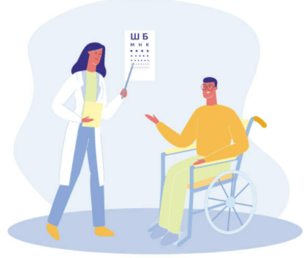5 Things Patients Want the Most From Their Optometrist
Patients trust OD’s with their eye health, therefore it’s understandable just how important it is for the relationship to be a healthy one. When the relationship is strong, your patient’s health will improve. When it is not, the patient may suffer from a lack of clarity about their eye needs.
Take a step into your patient’s shoes and learn what they really want from their optometrist so you can provide the best care.
What Patients Want From Their Optometrist
Transparency
The PwC Health Research Institute surveyed thousands of patients to gauge their opinions of healthcare and found that active listening and transparency are the top priorities for patients when it comes to choosing a medical practitioner. When you are helping a patient, try to be as honest as possible even if you don’t have all the information about their diagnosis. Educate them on what you do know and your patients will feel much more secure.
Patients want to avoid hassles
Patients don’t want to wait, and they certainly don’t want to be hassled. A great strategy for avoiding hassles is pre-appointing yearly exams and using verbiage to inform your patient that you are making their life easier.
Empathy
Always try to know and develop great relationships with your patients. Interaction creates a sense of connection, which will show your patient that you care. Also, patients are more likely to follow your instructions and return to your practice if they feel connected to you.
Effective communication
As an optometrist, it is your responsibility to explain everything in a way your patient can easily understand. Don’t get upset or lose patience if you are asked to repeat or clarify instructions. Furthermore, you can extend your communication through social media, emails, and newsletters to educate your patients even more.
Trust
In order to develop the best patient-doctor relationship, your patients must find you trustworthy enough to talk about other factors that affect their health. If they do not, you might not have made enough effort to earn their trust. Being an active listener will help you have a positive conversation with your patient and will help them feel comfortable speaking about their eye health concerns.
Read through our 5 Step OD Boot Camp to learn more on how to adapt to the changing eyecare landscape:

